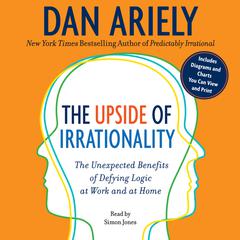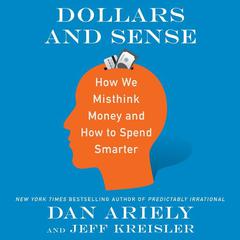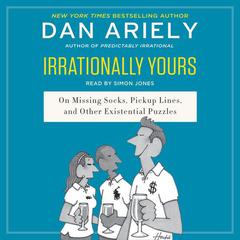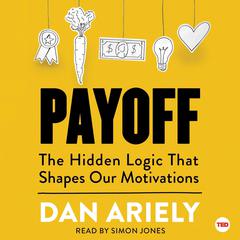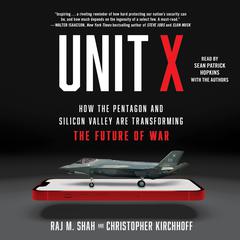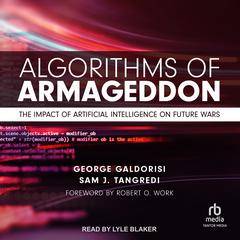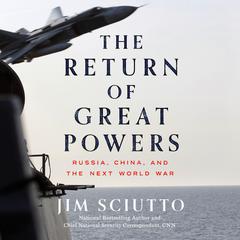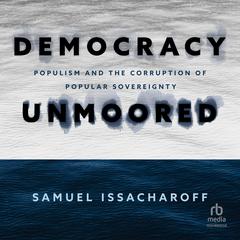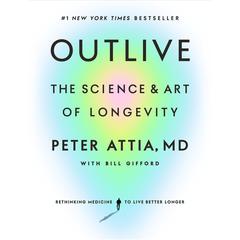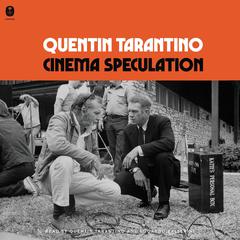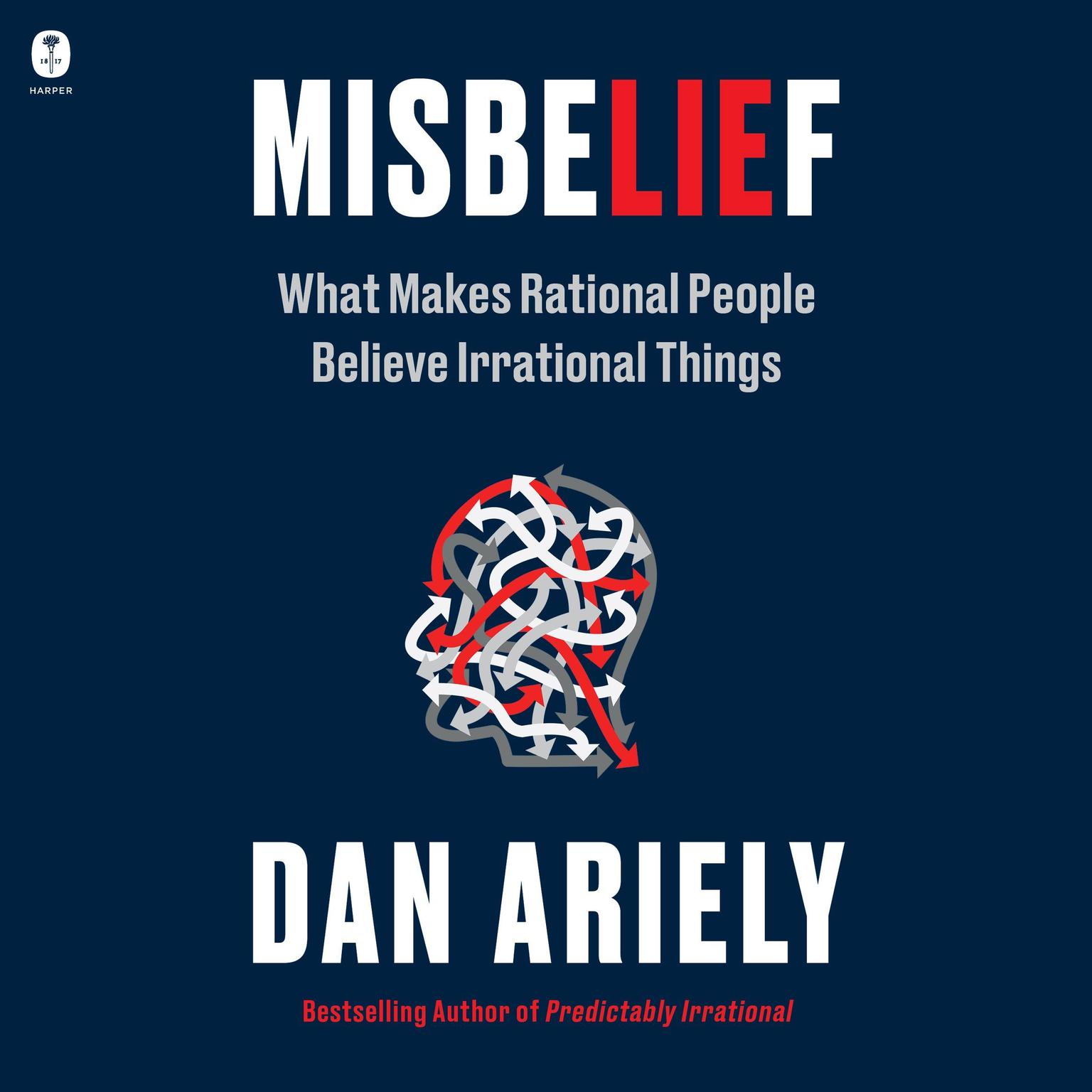 Play Audiobook Sample
Play Audiobook Sample
Misbelief: What Makes Rational People Believe Irrational Things Audiobook
 Play Audiobook Sample
Play Audiobook Sample
Quick Stats About this Audiobook
Total Audiobook Chapters:
Longest Chapter Length:
Shortest Chapter Length:
Average Chapter Length:
Audiobooks by this Author:
Publisher Description
The renowned social scientist, professor, and bestselling author of Predictably Irrational delivers his most urgent and compelling book—an eye-opening exploration of the human side of the misinformation crisis—examining what drives otherwise rational people to adopt deeply irrational beliefs.
Misinformation affects all of us on a daily basis—from social media to larger political challenges, from casual conversations in supermarkets, to even our closest relationships. While we recognize the dangers that misinformation poses, the problem is complex—far beyond what policing social media alone can achieve—and too often our limited solutions are shaped by partisan politics and individual interpretations of truth.
In Misbelief, preeminent social scientist Dan Ariely argues that to understand the irrational appeal of misinformation, we must first understand the behavior of “misbelief”—the psychological and social journey that leads people to mistrust accepted truths, entertain alternative facts, and even embrace full-blown conspiracy theories. Misinformation, it turns out, appeals to something innate in all of us—on the right and the left—and it is only by understanding this psychology that we can blunt its effects. Grounded in years of study as well as Ariely’s own experience as a target of disinformation, Misbelief is an eye-opening and comprehensive analysis of the psychological drivers that cause otherwise rational people to adopt deeply irrational beliefs. Utilizing the latest research, Ariely reveals the key elements—emotional, cognitive, personality, and social—that drive people down the funnel of false information and mistrust, showing how under the right circumstances, anyone can become a misbeliever.
Yet Ariely also offers hope. Even as advanced artificial intelligence has become capable of generating convincing fake news stories at an unprecedented scale, he shows that awareness of these forces fueling misbelief make us, as individuals and as a society, more resilient to its allure. Combating misbelief requires a strategy rooted not in conflict, but in empathy. The sooner we recognize that misbelief is above all else a human problem, the sooner we can become the solution ourselves.
Supplemental enhancement PDF accompanies the audiobook.
Download and start listening now!
“Simon Jones delivers a flawless performance full of lively interpretations and emotional resonance. The acclaimed British actor is enormously entertaining to hear, but he never steals the spotlight from the author’s conversational writing and fascinating insights…Winner of the AudioFile Earphones Award.”
— AudioFile
Quotes
-
“Written with accessibility and humor…With a background in behavioral sciences, this is the authority in the subject that we’ve needed to make sense of it all.”
— Barnes&Noble.com -
“Empathetic but not overly soft, Ariely counsels readers to try to understand why ostracism won’t do the trick, why social roles help drive extreme emotions and polarization, and why dealing with the ‘funnel of misbelief’ is a proposition both staggeringly challenging and wholly necessary.”
— Kirkus Reviews -
“Ariely’s goal…to show the reader how easy it is to believe the irrational. The book asks us to foreground empathy to reexamine some of our own beliefs.”
— Booklist -
“In Misbelief, he helps us understand the nature of our opinions, how they’re formed, and how the forces of misinformation can distort them.”
— Arianna Huffington, #1 New York Times bestselling author
Awards
-
Winner of an AudioFile Earphones Award
-
An AudioFile Best Audiobook of the Year
Misbelief Listener Reviews
Be the first to write a review about this audiobook!
About Dan Ariely
Dan Ariely is the author of the New York Times bestsellers Predictably Irrational and The Upside of Irrationality. He is the James B. Duke Professor of Psychology and Behavioral Economics at Duke University and is the founder of the Center for Advanced Hindsight. His work has been featured in the New York Times, the Wall Street Journal, the Washington Post, the Boston Globe, and elsewhere.
About Simon Jones
Martin Dugard is the New York Times bestselling author of several books of history. His book Into Africa: The Epic Adventures of Stanley and Livingstone was adapted into a History Channel special. He lives in southern California with his wife and sons.




